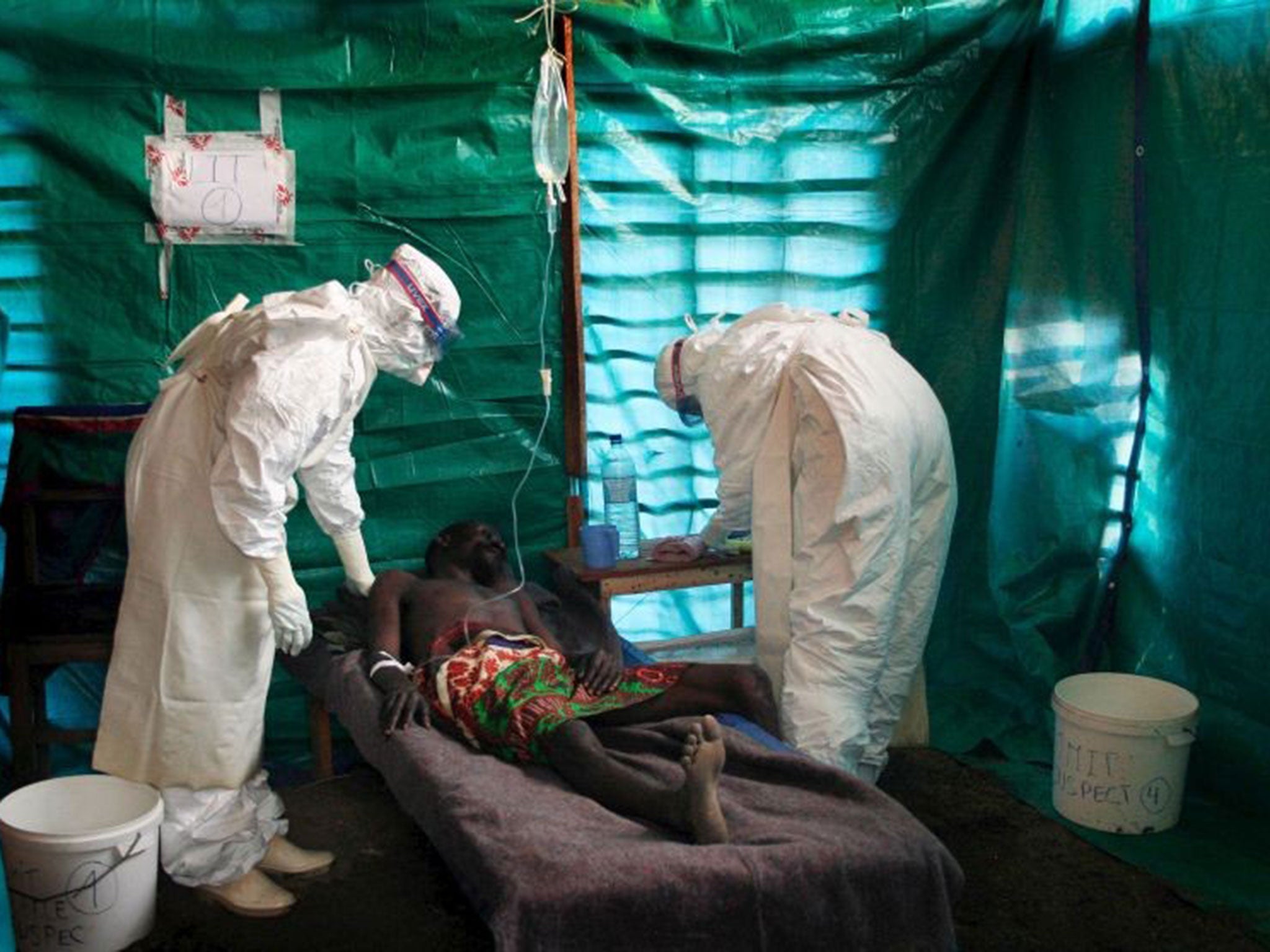Ebola outbreak: Western drugs firms have not tried to find vaccine 'because virus only affects Africans', says UK's top public health doctor
Professor John Ashton accuses pharmaceutical industry of 'moral bankruptcy'

Britain's leading public health doctor today blames the failure to find a vaccine against the Ebola virus on the "moral bankruptcy" of the pharmaceutical industry to invest in a disease because it has so far only affected people in Africa – despite hundreds of deaths.
Professor John Ashton, the president of the UK Faculty of Public Health, says the West needs to treat the deadly virus as if it were taking hold in the wealthiest parts of London rather than just Sierra Leone, Guinea and Liberia. Writing in The Independent on Sunday, Professor Ashton compares the international response to Ebola to that of Aids, which was killing people in Africa for years before treatments were developed once it had spread to the US and UK in the 1980s.
He writes: "In both cases [Aids and Ebola], it seems that the involvement of powerless minority groups has contributed to a tardiness of response and a failure to mobilise an adequately resourced international medical response.
"In the case of Aids, it took years for proper research funding to be put in place and it was only when so-called 'innocent' groups were involved (women and children, haemophiliac patients and straight men) that the media, politicians, scientific community and funding bodies stood up and took notice."
The Ebola outbreak has so far claimed the lives of at least 729 people across Liberia, Guinea, Sierra Leone and Nigeria, according to the latest figures from the World Health Organisation (WHO), although the number is likely to be far higher.
Yesterday, a US relief organisation confirmed that two US aid workers who contracted the disease in Liberia had left the country. Dr Kent Brantly was being treated in a specialised hospital unit in Atlanta, Georgia, after becoming the first person with the disease to arrive on US soil yesterday evening. The second aid worker, Nancy Writebol, was due to land on a separate private flight.
On Friday, the WHO warned that the outbreak in West Africa was "moving faster than our efforts to control it". The organisation's director general, Dr Margaret Chan, warned that if the situation continued to deteriorate, the consequences would be "catastrophic" to human life. Professor Ashton believes that more money must be funnelled into research for treatment.
"We must respond to this emergency as if it was in Kensington, Chelsea and Westminster. We must also tackle the scandal of the unwillingness of the pharmaceutical industry to invest in research [on] treatments and vaccines, something they refuse to do because the numbers involved are, in their terms, so small and don't justify the investment. This is the moral bankruptcy of capitalism acting in the absence of a moral and social framework."
Western countries are on high alert after Patrick Sawyer, a civil servant for the Liberian government, died last week after arriving at Lagos airport – the first known case in Nigeria. International airline hubs are the focus of attention because of the high volume of passengers flying into and out of West Africa every day. Dubai's Emirates airline began a ban yesterday on its flights in Guinea over the crisis, with the suspension lasting until further notice.
Professor Ashton welcomed the decision by the Foreign Secretary, Philip Hammond, to convene a meeting of the Government's crisis committee, Cobra, last week to discuss the UK's preparedness for cases of Ebola in this country.
Development of a vaccine is in the early stages in the US, but this is on a small scale and there is little hope of one being ready to treat the current outbreak in West Africa. Dr Anthony Fauci, the director of the National Institutes of Health, an agency of the US Department of Health and Human Services, has said it has plans possibly to begin testing an experimental Ebola vaccine on people in mid-September, following encouraging results in pre-clinical trials on monkeys. Earlier this month, the US Food and Drug Administration put a hold on a trial upon healthy volunteers by Tekmira Pharmaceuticals Corporation to ensure their potential Ebola treatment has no ill-effects, as it sought more information to ensure the safety of volunteers.
Professor Ashton said: "The real spotlight needs to be on the poverty and environmental squalor in which epidemics thrive and the failure of political leadership and public health systems to respond effectively. The international community has to be shamed into real commitment... if the root causes of diseases like Ebola are to be addressed."
Join our commenting forum
Join thought-provoking conversations, follow other Independent readers and see their replies
Comments
Bookmark popover
Removed from bookmarks